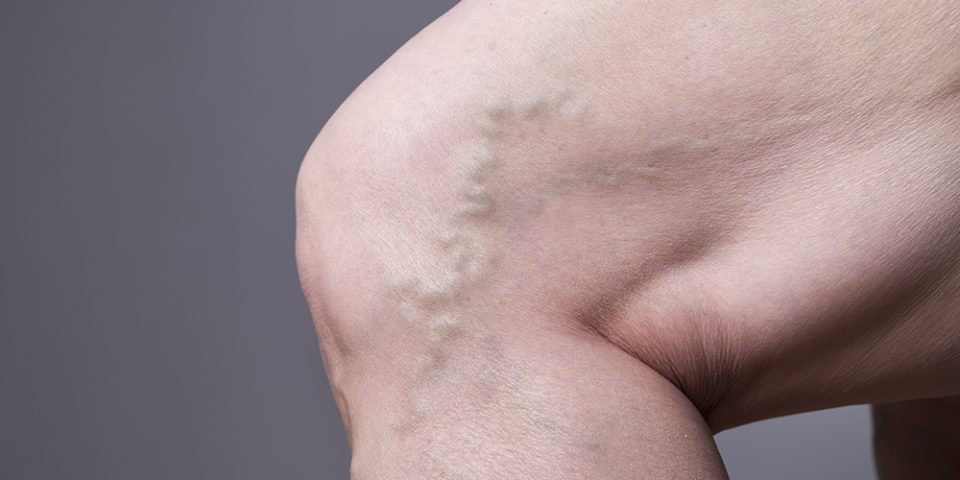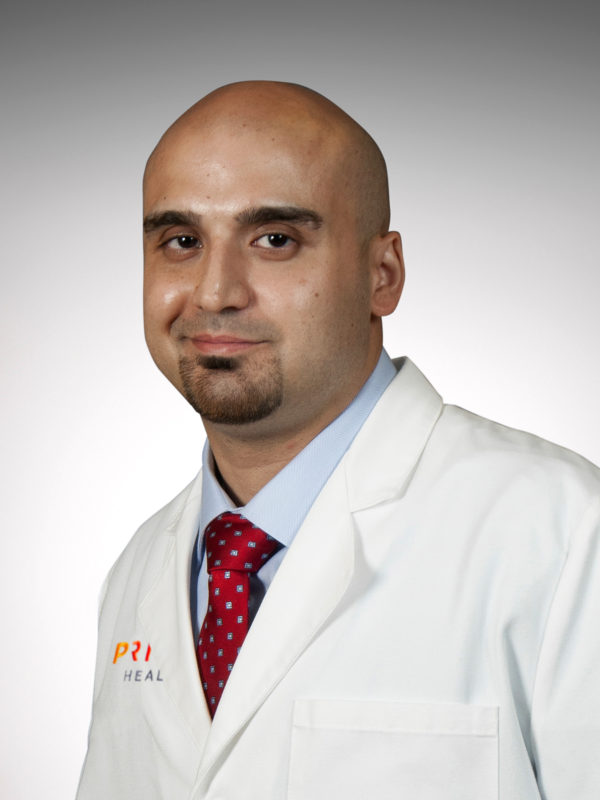Are varicose veins a sign there’s a heart problem?
If you have varicose veins – those blue, bulging veins that can appear on your legs – your first concern might be about how they look. But many also wonder if it’s a sign of a potential heart problem.
Cardiovascular surgeon Gautam Bhatia, MD, said varicose veins are more of a cosmetic concern, but they can sometimes lead to, or mask, bigger problems.
What causes varicose veins?
There are two venous systems in the legs – the deep (arterial) system and a superficial system. Varicose veins occur in the superficial system, whereas heart disease and peripheral artery disease typically involve the arterial system.
“Varicose veins are usually caused by a dysfunction of the valves within the superficial system,” Dr. Bhatia said. “For blood to go from the feet to the heart, it’s got to get past gravity and so the muscles in your legs actually help push the blood back toward the heart.”
The valves close to stop the blood from going back into your legs and feet. When those valves don’t work properly or when there is stretching of the veins, varicose veins occur.
Both men and women are at risk, but they occur more often in women. Other risk factors include obesity, pregnancy and old age.
“If the appearance of the veins bothers you enough that it affects your confidence, there are procedures that can be done to get rid of them,” Dr. Bhatia said.
How can you tell if you might have a more serious problem?
Here are a few warning signs to look for.
- Ulceration or bleeding. This happens when varicose veins get so big that they cause the skin to become thin, leading to ulcers and bleeding.
- Swollen legs. This is a common symptom, but generalized swelling of the legs can also be a sign of heart failure, a condition where the heart doesn’t pump blood as well as it should. Swollen legs can also be a symptom of deep vein thrombosis, which are clots in the deep system, or chronic venous hypertension. This occurs when clots cause the pressure inside your veins to increase, leading to swelling and other problems.
If you’re experiencing these symptoms or if you have large varicose veins that you’re concerned about, check with your primary care doctor.
Find a doctor
Whether you’re looking for a primary care physician or need to see a specialist, we’re here to help with experienced, compassionate care near you.
Find a Doctor

